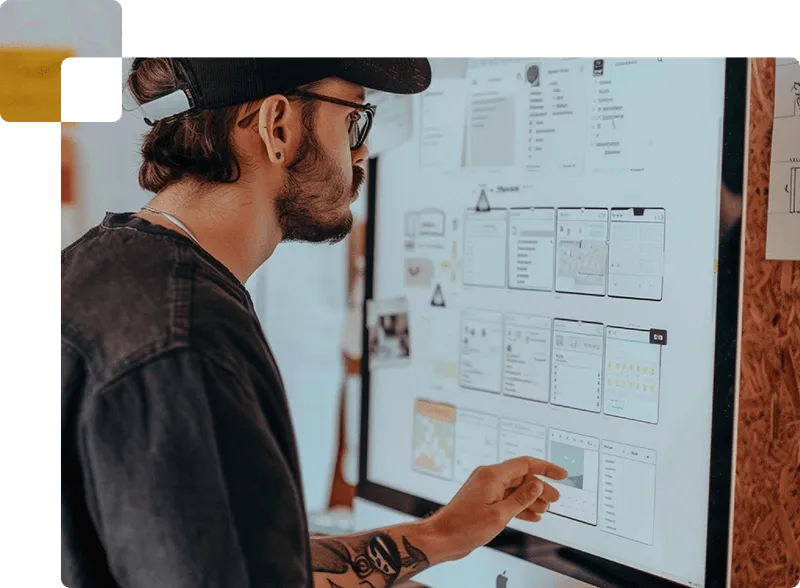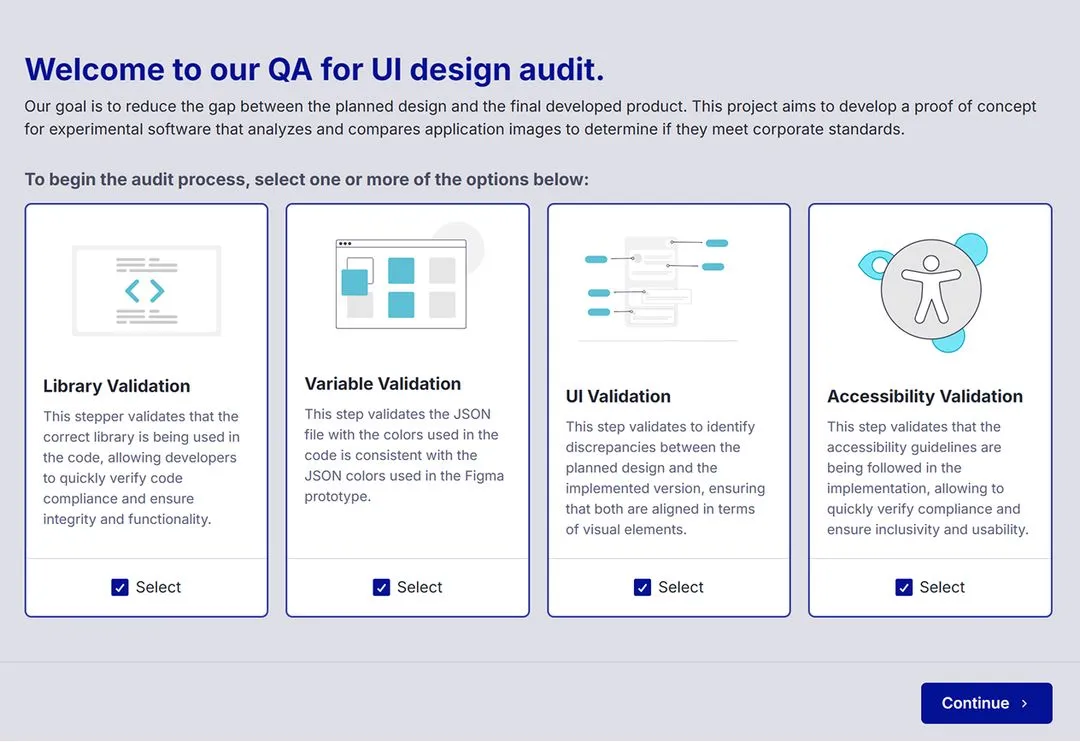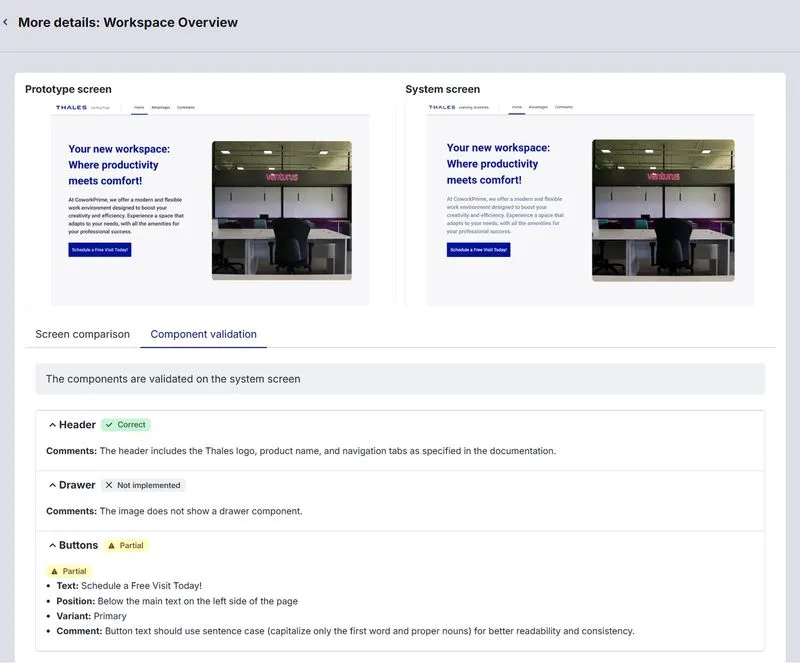AI for UI Validation and Accessibility
How we used AI to ensure interface consistency and accessibility in complex systems.


Case Background
Thales is a multinational company operating in over 60 countries, developing information systems and technology solutions for industries such as Defense, Aerospace, Cybersecurity, and Digital.
The challenge brought to Venturus was to standardize the company’s applications in line with their corporate Design System guidelines.
In addition, Thales needed to ensure that their new websites complied with WCAG standards — a globally recognized set of recommendations for digital accessibility.
The Challenge
Manual verification of applications is time-consuming, labor-intensive and prone to human error, often leading to rework in later development stages.
Venturus was tasked with automating this validation process while ensuring:
- Automated verification with the Design System
- Compliance with accessibility standards
- Reduced manual effort and increased productivity

The Solution
For this project, we developed a Proof of Concept (PoC) that brought together artificial intelligence, software development and UI expertise.
- 1. The user selects the type of check they want to perform.
- 2. Then uploads a screen or page to the platform.
- 3. The system generates a report indicating what needs to be adjusted.


Results
Although it was still a PoC, the initial outcomes already demonstrated significant gains:
This project showcases how the strategic use of Inteligência Artificial can streamline tasks, enable scalable standardization, and boost accessibility in digital development.